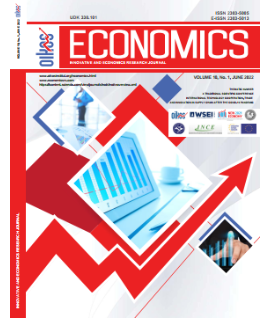THE IMPACT OF THE COVID 19 CRISIS ON THE FISCAL STABILITY OF REPUBLIC OF SRPSKA
DOI:
https://doi.org/10.2478/eoik-2022-0006Abstract
The consequences of the COVID-19 crisis have had a negative impact on the
fiscal stability of Republic of Srpska. Although the crisis is not officially over yet,
a large number of countries needed to implement fiscal consolidation.
Republic of Srpska is one of the small and open economies that are exposed
to various negative market distortions. COVID-19 crisis of the most important
foreign trade partners of the Republic Srpska has had a negative impact on the
economy of Republic Srpska.
The basic idea of the paper is based on the need to analyze the impact of the
COVID-19 crisis on the fiscal stability and public finances of Republic of Srpska.
The subject of the research is the analysis of the implementation of the fiscal
consolidation procedure in Republic of Srpska and the impact on its economic
growth. For the implementation of fiscal consolidation, the choice of methods
and instruments on which the process of implementing fiscal consolidation is
based is very important.
Fiscal consolidation is necessary due to the consequences caused by the
COVID-19 crisis and the enormous growth of the deficit. The analysis proves
that the measures applied to rehabilitate the crisis have resulted in improved
fiscal stability, which ultimately had a positive impact on economic growth. Fiscal
consolidation will be successful and expansive if it is carried out by a combined
method of increasing revenues and reducing expenditures and if the increase in
revenues is caused by the growth of economic activity and not by the tax burden.
